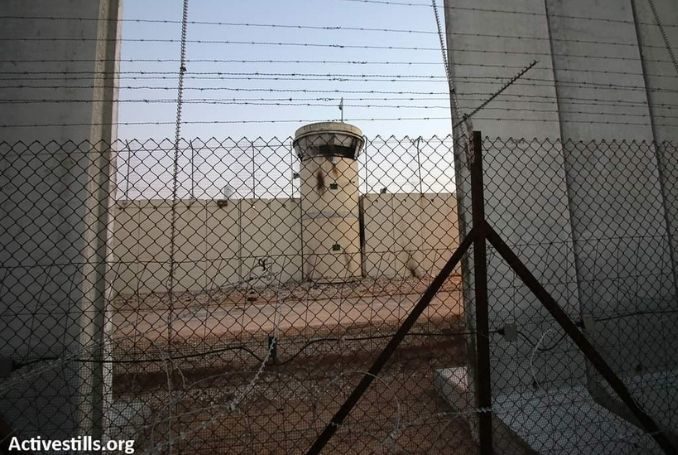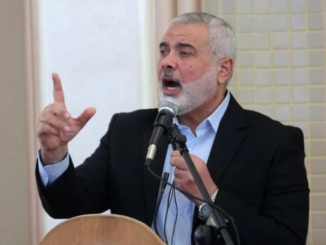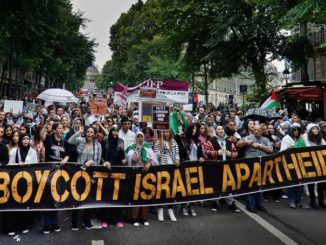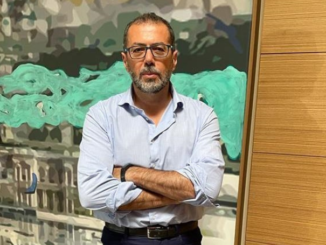
By Benay Blend
“Everyone’s reporting on the B’Tselem report like it’s the first they’ve ever heard anyone say that Israel’s an apartheid state,” commented Susan Abulhawa, Palestinian author and activist. “It’s like nothing about Palestinian lives, realities, and experiences is true or real until Israelis proclaim it.”
Abulhawa’s commentary refers to the Israeli human rights group’s position paper (January 12) that declared “the entire area between the Mediterranean Sea and the Jordan River is organized under a single principle: advancing and cementing the supremacy of one group—Jews—over another—Palestinians.” Moreover, it labeled that system an apartheid regime.
On the one hand, B’tselem’s report got a lot of traction partly because it makes Israeli denial all that much more difficult to support, either by its own people or by journalists who are afraid of being labeled anti-Semitic.
On the other hand, Palestinian poet and activist Remi Kanazi captured the irony of this moment in a tweet:
“Palestinians are always spoken about, but rarely ever spoken to or allowed to speak. Everything is framed in terms of the occupier, its interests, its desires, its wants and dislikes. It’s never about the people who *face* apartheid, occupation, and Israeli settler colonialism.”
Then there is the broader context of whose voices are really heard. As usual, Israeli sources were quick to deny the claims. According to the Times of Israel, the Zionist state refutes the term, explaining that the “restrictions it imposes in Gaza and the West Bank are temporary measures needed for security due to repeated terror attacks emanating from those regions.”
Moreover, as Norman Finkelstein observes, as abhorrent as apartheid might be, he points instead to the “worthlessness” that the Israeli state ascribes to the lives of Palestinians, a feature that indeed might partially explain why the victim’s words are never heard.
“As B’Tselem and other major human rights organizations have documented on literally a daily basis,” Finkelstein concludes, “Palestinians are routinely murdered with impunity by private Israeli citizens, civil police, and military personnel.” Because “these murders evoke no interest, let alone protest, from the Israeli-Jewish public,” and also from Western media, the general public has no context for understanding Palestinian resistance let alone the reality of their daily lives.
“The report received widespread international media attention and was described as a ‘watershed’ moment,” writes Lana Tatour. “But it was only a watershed moment for B’Tselem, which was using the term “apartheid” for the first time in its three-decade history, and for an international community that is so infatuated with Israeli voices. For Palestinians, none of this is new.”
In the end, Israeli propaganda has already gone into full production mode to prove that “this is not who we are,” because if B’tselem’s charge is true it risks undoing the origin story of Israel as a Jewish movement for national liberation, a myth that effectively glosses over the colonization of Palestine in the process.
In much the same vein, Matthew Delmont notes there is a historical link between Nazism and white supremacy in the United States, but because that has been ignored many acted surprised with the recent rise of racism. Bearing witness to this erasure, the hashtag #thisisnotwhoweare has gained traction after January 6th.
As Samuel Moyn puts it, there has been a tendency to cleanse American history by marking the Trump years as exceptional, thereby ensuring that the myth of American exceptionalism will survive. After Trump’s election, Moyn continues, the Resistance attempted to “abnormalize him: the US teetered on the edge of fascism, and with a Hitler on the make now at the helm.”
Accordingly, Ibram X Kendi’s “Denial is the Heartbeat of America” explains how this country refuses to put its worst moments into historical context. After the right-wing invasion of the capital on January 6th, Kendi quotes one public official after another whose denial that “this is who we are” reiterates Israel’s claim to being the only liberal democracy in the Middle East.
“White terror is as American as the Stars and Stripes,” Kendi claims. “But when this is denied, it is no wonder that the events at the Capitol are read as shocking and un-American.” What is at the root of this denial, whether intentional or not, is the long-held notion of American exceptionalism, an idea, claims the late historian Howard Zinn, that this country represents “a beacon of liberty and democracy. People can look to us and learn from and emulate us.”
Much like Israel’s self-perception, too, America’s false notion of itself is so entrenched that denying it means looking critically at how events like the January 6 “insurrection” are embedded into a story that might best be told by those who have been on the receiving end of our dark past of genocide, imperialism, and exploitation of the poor.
In Israel, that would have meant listening to Palestinians who for years have born the brunt of Israel’s apartheid system. In this country, it would mean listening to grassroots activists like Enrique Cardiel, an organizer for La Raza Unida and Executive Director of The Bernalillo County (New Mexico) Community Health Council. Today, on Martin Luther King Day, Cardiel made clear that
“our society murdered someone who was ideologically non-violent. This society has continued to continually attack any resistance to patriarchy, capitalism, hierarchy, as well as racism by calling it violent. Even when it was just taking a knee silently. The inevitable issues of this society were made clear to those who still hoped we were making progress with the seditious insurrection on the 6th. While we may say one person sped that along, it was in place and progressing long before. If you want to honor Dr. King please do so by critically assessing the world we live in and make one that is truly democratic and includes everyone from the bottom-up.”
Robert Jones, Jr., author of The Prophets (2021), expands on this idea. In his Facebook persona, Son of Baldwin, Jones explains that “it’s very easy to attribute what we’ve seen over the past four years to Pooty Bangs. But the fact of the matter is this has its roots in a repetitive process that began, on this land, at least as early as 1492.”
“How long has it been,” Jones asks,“that experts have been saying that white supremacists were enlisting in the military and joining police forces in order to gain the skills they need to start a second civil war?” Certainly, activists in my own city of Albuquerque have been subjected to that violence and harassment for years, but the police and/or state/city government has done very little to stop it.
As long as white supremacists were murdering people of color, Jones explains, no one cared. But “when they stormed the Capitol and wealthy whiteness felt like it might be in jeopardy did, they even start acknowledging that something might be amiss.”
In conclusion, he claims that the whole structure is surreal, an “entire system of unreality,” an arrangement that allows those in power to call for unity while ignoring the voices of half the country—people of color, the poor, and unsheltered–who from their own experience understand reality well.
In the end, if Americans continue to ignore the dark side of their history, the system that Jonathan Cook explains brought us the last four years will live on. “Whether Trump is ultimately convicted or not in the Senate,” claims Cook, “the system that produced him will be acquitted – by Congress, by the new president, by Wall Street, by the corporate media.”
In Israel, too, there is a need to place apartheid within a wider framework. “Racial domination is treated as a standalone feature of the Israeli state,” Tatour explains, “disconnected from the settler-colonial enterprise in Palestine. Even when apartheid is acknowledged, there is no reckoning with Zionism as a racial ideology and movement.”
Framing Trump as the sole cause for all our current woes erases America’s entire colonialist past. In the same way, explains Tatour, the “erasure of settler-colonialism” in the discussion of Israeli apartheid risks “displacing decolonization in favor of liberal projects of equality.” In fact, it turns Palestine into “a liberal question, rather than a colonial one.”
“Unlike liberal equality,” concludes Tatour, “decolonization demands the dismantling of settler-colonialism, its institutions and its logics,” and also ensures that those who have been impacted by the system in both countries will have a voice.
– Benay Blend earned her doctorate in American Studies from the University of New Mexico. Her scholarly works include Douglas Vakoch and Sam Mickey, Eds. (2017), “’Neither Homeland Nor Exile are Words’: ‘Situated Knowledge’ in the Works of Palestinian and Native American Writers”. She contributed this article to The Palestine Chronicle.

– Benay Blend earned her doctorate in American Studies from the University of New Mexico. Her scholarly works include Douglas Vakoch and Sam Mickey, Eds. (2017), “’Neither Homeland Nor Exile are Words’: ‘Situated Knowledge’ in the Works of Palestinian and Native American Writers”. She contributed this article to The Palestine Chronicle.








I am deeply grateful to the Palestine Chronicle for continuing to publish issues pertaining to the Palestinians, the victims of a 72-year-old vicious Israeli Apartheid system. The Chronicle holds up the banner that few news-casters dare to face, let alone bring forward to their members/listeners.
I read this news outlet with deep feeling, and great interest. I URGE others to do the same. Thank you, Ramzy Baroud, and all the Chronicle’s staff. Very sincerely, Huda Giddens